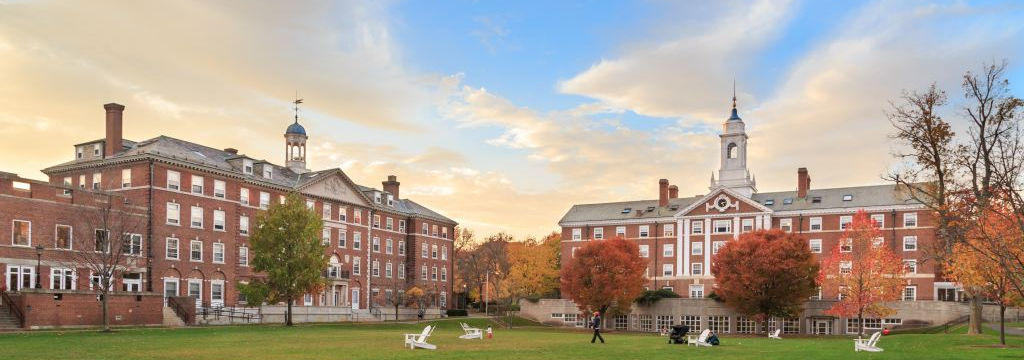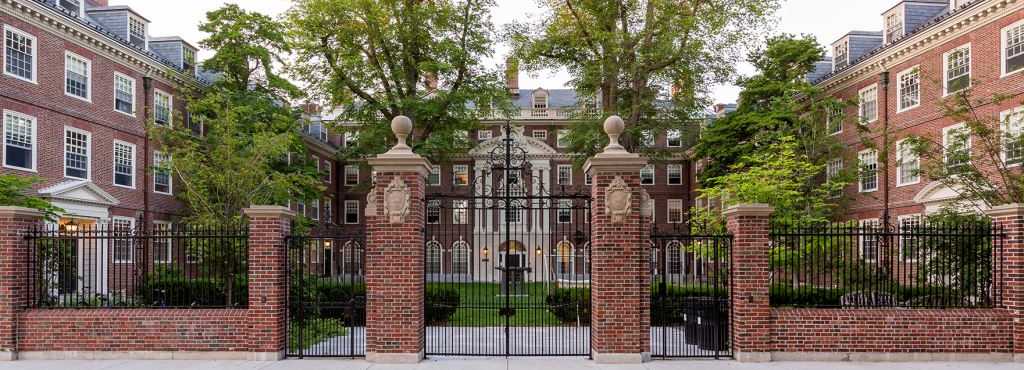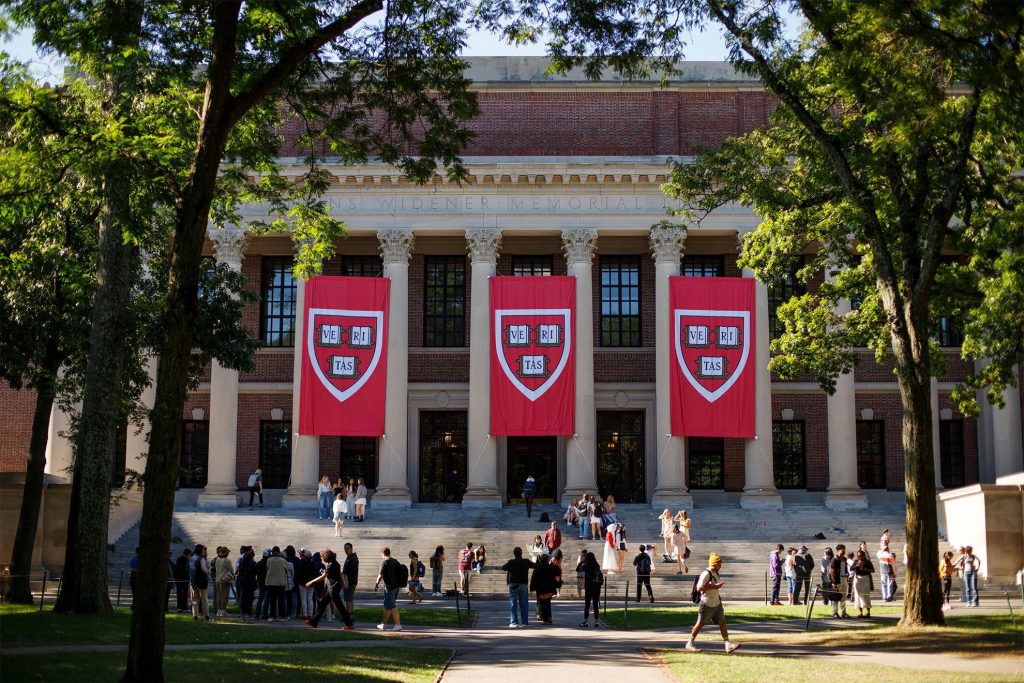Updated: Friday, October 10, 2025
Sample Harvard Interview Questions and Answers

If you’re nervous about your Harvard interview, you’re not alone. Since Harvard is one of the most competitive schools in the country, it’s important to do your best on every component of the application to stand out.
Interviews can feel particularly stressful for students because they’re an unfamiliar challenge. However, it is possible to build up your confidence by preparing for college interviews. Keep reading to learn more about the Harvard interview questions you can expect to encounter, as well as tips for answering them.
Is a Harvard Interview a Good Sign?
One of the first questions most students have is what an invitation to interview at Harvard means for their chances of admission. Think of the interview as something positive because it will help you learn more about the campus. Additionally, it’s an opportunity to reveal more about your personality and demonstrate your interest in and knowledge of Harvard.
Your application is considered complete without the interview. So, while having the chance to interview is good, it does not hurt you if you do not have one.
Does Everyone Get a Harvard Interview?
While getting an invitation to interview is an exciting opportunity, it’s far from a guarantee that you’re going to gain admission. In fact, many top colleges extend interviews to as much as 70% of their applicant pool. Similarly, not getting an interview doesn’t mean you aren’t going to get in. Opportunities to interview depend on the availability of alumni interviewers in your area.
What Is a Harvard Interview Like
The best way to ace Harvard interview questions is to understand what the interview will be like going into it. Harvard interviews are conducted by alumni, not admissions officers. Your interview may be held virtually, in-person, or by phone.
Alumni interviewers do not have access to your application, so you don’t need to be concerned about repeating something you have already covered. You may be asked about these topics:
- Your favorite class.
- What your high school experience has been like.
- What extracurricular activity is most meaningful for you.
- What you do for fun.
- What your academic interests are/what you hope to major in.
- How you envision your college experience.
How Long Are Harvard Interviews?
Generally, interviews last for approximately an hour and are viewed as an informal and relaxed conversation. Because of this, allow some flexibility with the timing, as interviews may end up being shorter or longer due to the conversational format.
The Harvard Interview Process: From Admissions to Final Decision
After a student applies to Harvard, they may receive a request for an interview from an alumni interviewer. Not all students will receive such a request, since it depends on availability. After every interview, each alumnus will compile a report, which admissions officers will consider when reviewing applications.
Once admissions officers have made their decisions, students will be notified about these outcomes. As Harvard admission statistics illustrate, gaining a seat in the college is extremely competitive.
Waiting for admissions decisions can be one of the most challenging components of the application process, but students who answer Harvard interview questions well can feel confident that they have done everything possible to set themselves apart.
The Harvard Interview: Sample Questions and How to Answer Them
Every Harvard interview is unique, and the questions that are asked may not be the same each time. Therefore, it’s important to prepare for a wide range of questions. Here are the types of questions you can expect.
What Are You Potentially Interested in Studying in College?
First and foremost, you’re going to be evaluated on your academic performance. Harvard is looking to admit passionate students who are going to make a difference in a field that they have already demonstrated a commitment to. It’s ok if you’re not exactly sure what you want to do after college — focus on composing a thoughtful answer that makes it clear you’re already pursuing specific fields of study at an advanced level.
Tell Me About a Challenge You Encountered in School and How You Overcame It
We all encounter bumps in the road; what matters most is the steps you take to solve them. Think carefully about an obstacle you overcame recently and about what your solution says about you as a student and a person.
What Do You Do Outside of the Classroom?
While academics certainly come first, expect to come across some Harvard interview questions about your extracurricular pursuits as well. Avoid reading from your activities list and instead focus on what’s meaningful to you.
What Was Your Favorite Book You Read This Year?
The goal of this question is for the interviewer to get a glimpse into your personality, interests, and how you think. In your answer, provide the book title, author, a brief summary, and an explanation of why you liked the book. If applicable, explain how you can apply the lessons you learned from reading it.
Who Do You Admire and Why?
This is an opportunity to demonstrate your values, inspirations, and how you define success or character. Highlight the qualities this person has that align with your own values or professional goals. Explain how this person inspires you and what you have learned from them.
Questions to Ask the Harvard Interviewer
Students need to come into the interview with a few questions prepared for the interviewer. Some queries to consider include:
- What makes Harvard’s campus unique?
- What are some alumni in my field doing after graduation?
- What’s your biggest advice for incoming freshmen?
- What did you enjoy most about your time at Harvard?
- What drew you to Harvard initially?
Harvard Interview Tips: How to Prepare
If you’re looking to excel and answer the Harvard interview questions to the best of your ability, keep the following tips in mind. In fact, these are good tips for all college admissions interviews.
Practice Makes Perfect
Interviews are unfamiliar to many high school students, so it’s important to rehearse beforehand so that you feel comfortable. Conduct mock interviews with a friend or parent so you can practice your responses.
Be Yourself
There isn’t one type of student that Harvard is looking to admit. Instead, focus on being genuine and highlighting the skills and experiences that set you apart.
Dress with Confidence
There’s no need to wear a full suit and tie, but you should also avoid coming to the interview in ripped jeans and a ratty t-shirt. Take time to select an outfit you feel good in and something that sends the message that you’re a mature and serious student.
What Are Your Chances at Harvard?
While Harvard’s acceptance rate has recently dropped below 4%, that doesn’t mean you don’t have a shot at gaining a seat in the class. To be competitive at Harvard, you’ll not only need strong grades and test scores; you’ll also need to demonstrate your excellence in extracurricular activities and your commitment to making a difference, which is exactly where a compelling interview can be beneficial.
To feel confident as you answer Harvard interview questions, do your research, make campus visits (if possible), and prepare for this part of the process, in addition to other application components. If you’re looking for more guidance, check out our full guide about how to get into Harvard for more practical tips.
Maximize Your Chances with IvyWise
Because Harvard is highly selective, it is beneficial to receive expert guidance that can maximize your chances of admission. All IvyWise counselors have served on admissions committees at some of the most prestigious schools in the U.S. — including the Ivies — so they know exactly how students can position themselves to stand out. Contact us today to learn more.
Get the IvyWise Newsletter
Related Posts

Princeton vs Harvard: Which One Should You Choose?
When most students think of top-tier colleges, Princeton and Harvard are likely some of the first schools to come to mind. Both institutions are members of the Ivy League that have plenty of famous alumni, as well as ample research and learning opportunities.

What Is the Harvard Graduation Rate?
Since Harvard University is one of the most competitive and academically rigorous colleges in the United States, applicants know that earning admissions can be a challenge. However, students are often less aware of the challenges they might face once they actually enroll at Harvard. Have you ever wondered about Harvard’s graduation rate?

Harvard Waitlist: How Hard Is It to Get Off of It?
Harvard is one of the most popular first-choice colleges for students, and it’s also one of the most competitive. Admission rates are consistently under 5% — for the class of 2028, the admission rate was 3.65%.
Given this competitive admissions rate, some very talented students are going to find themselves on Harvard’s waitlist. While most applicants have a general idea of what a waitlisted outcome means, few understand how waitlists really work and what they can do to boost their odds of admission.
